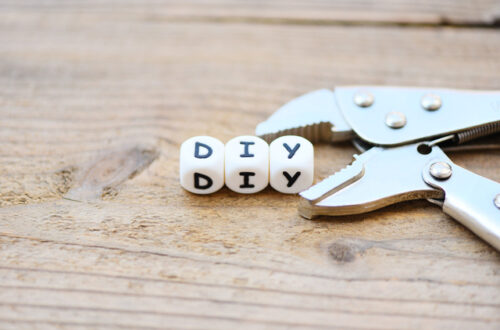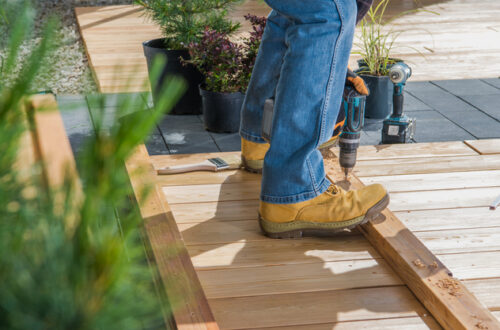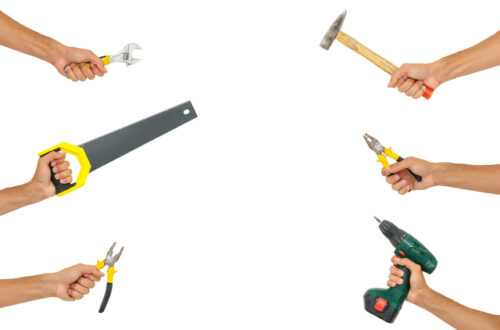
Essential DIY Tools Every Home Needs: Benefits, Costs, and How to Get Started
Whether you’re hanging a picture, assembling furniture, or tackling small repairs, having a basic set of DIY tools at home can be a game-changer. Not only do they save you the cost of hiring professionals for minor tasks, but they also empower you to take on projects, big or small, with confidence.
As someone who has managed multiple DIY projects with only essential tools, I can assure you that a well-equipped tool kit is a valuable investment. In this guide, we’ll go through the essential tools every home needs for DIY, explore the benefits versus costs, and give tips on choosing quality items that offer long-term value.
The Essential Tools Every Home Needs for DIY
Let’s start by building a list of tools that form the foundation of any well-rounded DIY kit. Each tool on this list will cover a range of basic repairs and home improvement tasks without overwhelming beginners.
1. Screwdrivers (Flathead and Phillips)
Screwdrivers are must-have tools that you’ll find yourself reaching for regularly. A basic set with both flathead and Phillips (cross-head) screwdrivers will allow you to handle a variety of tasks, from assembling furniture to tightening door hinges.
- Cost: A quality screwdriver set typically costs between $10 and $25.
- Benefit: Versatile and essential for numerous household tasks; screwdrivers are simple to use and great for both basic and more complex projects.
2. Hammer
A classic claw hammer is indispensable for basic repairs, picture hanging, and small construction projects. Look for a hammer with a comfortable grip that’s balanced but heavy enough to drive nails effectively.
- Cost: A good hammer ranges from $10 to $20.
- Benefit: This tool is highly durable and will be useful in projects ranging from nailing wood together to pulling out bent nails, making it a low-cost, high-benefit tool.
3. Tape Measure
Accurate measurements are crucial for successful DIY. A 25-foot retractable tape measure will serve most purposes, whether you’re measuring for a new bookshelf, hanging art, or planning furniture layouts.
- Cost: A reliable tape measure is around $5 to $15.
- Benefit: An affordable, accurate tool that prevents costly errors and ensures precision in your projects.
4. Adjustable Wrench

An adjustable wrench is great for tightening or loosening nuts and bolts of various sizes, making it a versatile addition to any toolbox. It’s especially useful for plumbing repairs, bike adjustments, and other general maintenance tasks.
- Cost: Around $15 to $25 for a high-quality adjustable wrench.
- Benefit: This tool saves you from needing a full wrench set, keeping your kit compact and cost-effective.
5. Pliers (Slip-Joint and Needle-Nose)
Pliers help with gripping, bending, and cutting wire. Slip-joint pliers work well for gripping large objects, while needle-nose pliers are perfect for working in tight spaces and handling small items.
- Cost: A basic set with both types of pliers can cost $15 to $30.
- Benefit: Pliers are incredibly versatile, aiding in everything from electrical work to crafting, making them a great value tool.
 Buy Special Amazon Deals Here
Buy Special Amazon Deals Here 6. Utility Knife
A utility knife is perfect for cutting materials like cardboard, plastic, and drywall. Look for one with a retractable blade and ergonomic handle for safe and comfortable use.
- Cost: Expect to spend between $5 and $15.
- Benefit: An affordable tool that’s useful for a wide range of tasks, from DIY to everyday household needs like opening packages.
7. Level
For hanging shelves, art, or cabinets, a level ensures everything is straight. A standard 24-inch level works for most tasks, but if you need to measure smaller surfaces, consider a torpedo level.
- Cost: A good level costs $10 to $25.
- Benefit: Prevents the frustration of crooked installations, making your DIY efforts look professional and well-finished.
8. Cordless Drill and Drill Bits
A cordless drill is essential for anyone who regularly takes on DIY projects, whether it’s assembling furniture, installing shelves, or even handling minor repairs. Make sure to get a set of drill bits for different materials (wood, metal, plastic).
- Cost: Quality cordless drills can range from $50 to $150, with bit sets costing around $10 to $20.
- Benefit: Although more expensive, a cordless drill is an incredibly versatile tool, making it an excellent investment for future projects.
Benefits of Having DIY Tools at Home
Now that we have a list of essential tools, let’s explore the benefits of having them on hand.
1. Cost Savings
Hiring professionals for small repairs or improvements can be costly. With the right tools, you can complete many projects yourself, from hanging shelves to fixing leaky faucets. Over time, the savings from DIY work can easily outweigh the initial cost of buying tools.
2. Convenience and Flexibility
Owning a set of tools means you don’t have to wait for someone else to fix minor issues around your home. You can address repairs, adjustments, and small improvements as soon as the need arises, making home maintenance more convenient and less dependent on others.
3. Skill Building
Using tools and taking on DIY projects is a valuable skill that boosts your self-sufficiency and problem-solving abilities. You’ll also find that over time, your comfort with handling tools will open the door to larger, more complex projects, further enhancing your confidence and abilities.
4. Home Customization
Owning tools empowers you to customize your living space. Whether it’s installing new fixtures, adjusting cabinetry, or putting up shelving, having your own tools allows you to make changes that align with your tastes and needs, making your home feel truly yours.
5. Environmental Benefits
DIY home repairs and repurposing materials reduce waste, helping you make eco-friendly choices. Repairing or modifying items rather than discarding them is a sustainable practice that contributes to a smaller carbon footprint.
Costs of DIY Tools: Initial Investment vs. Long-Term Value
The initial cost of buying tools may seem high, especially if you’re purchasing several at once. However, consider these points when weighing the cost against the long-term value:
- Durability and Longevity: Quality tools are made to last. Investing in well-built tools means they’ll serve you for years, reducing the need for replacement and saving you money in the long run.
- Low Maintenance Costs: Basic hand tools like hammers and screwdrivers require minimal upkeep. For powered tools like drills, maintenance is still manageable with proper care, making your investment even more worthwhile.
- Enhanced Home Value: Taking care of your home through DIY can improve its value. Well-maintained properties are often more appealing to buyers, meaning your tools may indirectly contribute to a higher resale price if you decide to sell.
Tips for Choosing Quality Tools
When buying tools, it’s tempting to go for cheaper options, but quality tools make all the difference in performance and durability. Here are some tips:
- Read Reviews: Research customer reviews to understand the tool’s longevity and performance.
- Choose Trusted Brands: Reputable brands may come with a slightly higher price tag, but they offer better warranties and reliability.
- Opt for Basic Sets: Many hardware stores offer starter kits that include several tools at a bundled price, which can save you money without sacrificing quality.
- Consider Tool Sharing: If you’re looking for ways to reduce costs, consider tool-sharing options. Sites like Hi-Ya.com.au, where users can borrow and lend tools using a point system, offer budget-friendly solutions for infrequent use.
Conclusion: Is Building a DIY Tool Kit Worth It?
A well-chosen set of DIY tools is an investment that pays for itself over time. From cost savings and convenience to environmental benefits and skill-building, the advantages far outweigh the initial expense. Start with the basics, focusing on tools that will serve a range of purposes.
Having your own tools means you’ll be prepared to handle whatever comes your way, bringing a sense of independence and satisfaction that can only come from DIY.
Would you like to add any specific tools or need advice on where to find quality starter sets? Let Ramsay Banna know, and he would be happy to help you build the ideal toolkit for your needs!
For Contacts Please Email Ramsay Banna
To Buy my Ebook click here




